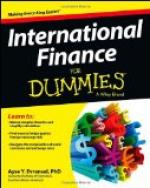Another lesson that the war has taught us is that modern warfare enormously increases the cost of carriage by sea, because it shuts up in neutral harbours the merchant ships of the powers that are weaker on the sea, and makes huge calls, for transport purposes, on those of the powers which are in the ascendant on the water. This increase in the cost of sea carriage adds to the cost of all goods that come by sea, and is a particularly important item in the bill that we, as an island people, have to pay for the luxury of war. It is true that much of the high price of freight goes into the pockets of our shipowners, but they, being busy with transport work for the Government, cannot take nearly so much advantage of it as the shipmasters of neutral countries.
The economic argument, then, that it pays best to make and grow things where they can best be made and grown remains just as true as ever it was, but it has been complicated by a political objection that if one happens to go to war with a nation that has supplied raw material, or half-raw material, for industries that are essential to our commercial if not to our actual existence, the good profits made in time of peace are likely to be wiped out, or worse, by the extent of the inconvenience and paralysis that this dependence brings with it in time of war. And even if we are not at war with our providers, the greater danger and cost of carriage by sea, when war is afoot, makes us question the advantage of the process, for example, by which we have developed a foreign dairying industry with our capital, and learnt to depend on it for a large part of our supply of eggs and butter, while at home we have seen a great magnate lay waste farms in order to make fruitful land into a wilderness for himself and his deer. It may have paid us to let this be done if we were sure of peace, but now that we have seen what modern warfare means, when it breaks out on a big scale, we may surely begin to think that people who make bracken grow in place of wheat, in order to improve what auctioneers call the amenities of their rural residences, are putting their personal gratification first in a question which is of national importance.




